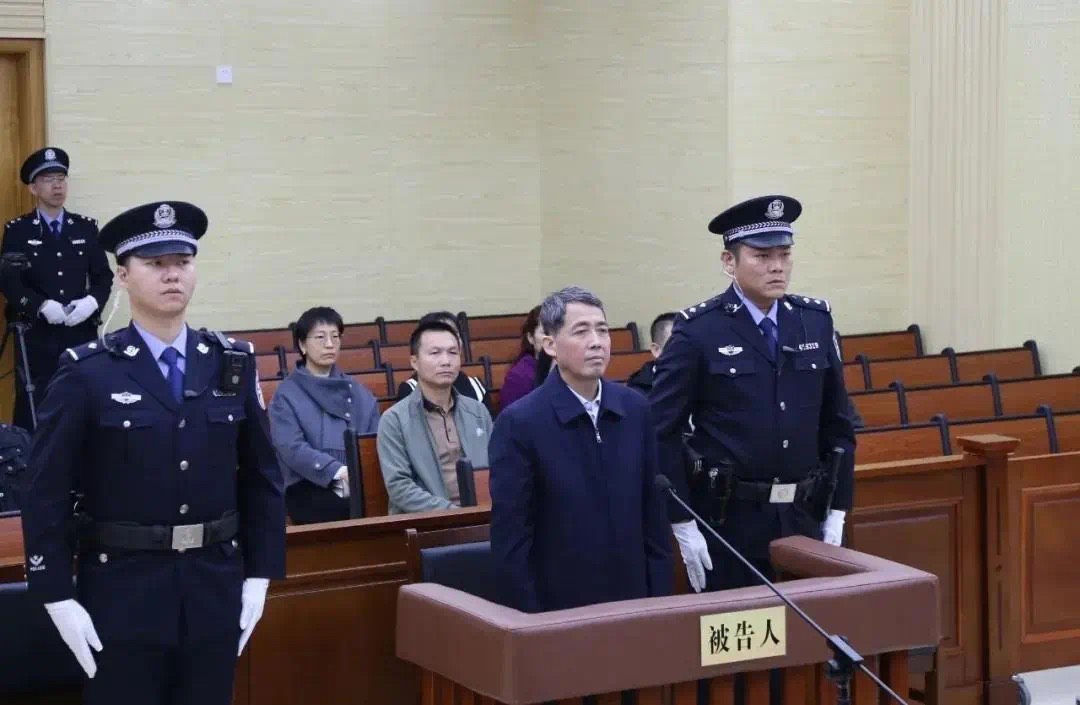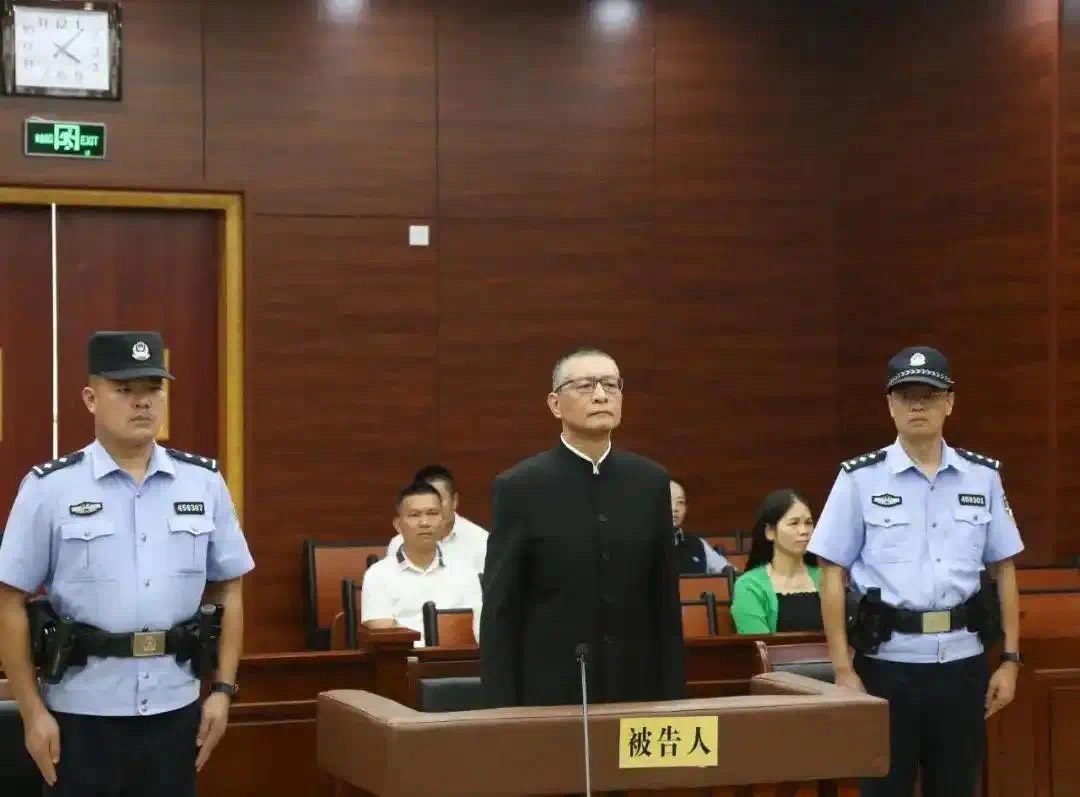柳州輕軌案背後的貪腐案,兩位市委書記被抓
柳州輕軌案如今被視為「政績工程」走向失控的典型案例,它的始末,幾乎是一部完整的官場沉浮錄與城市債務警示錄。當年,柳州市將輕軌建設宣傳為「城市榮耀」,巨大的廣告牌、官員的豪言,以及工程開工時的熱烈掌聲,都烘托出一幅「現代化躍升」的藍圖。然而,短短幾年之後,留給市民的卻是鋼筋裸露的墩柱、荒草叢生的工地,以及難以填補的財政黑洞。
這場風暴的導火索,是兩任市委書記的「政績衝動」。從鄭俊康到吳炜,他們為追求看得見、摸得著的「大工程」,在專家再三警告「客流量不足」的情況下,仍一意孤行推動項目上馬。資金來源無法保障,他們便選擇大規模舉債,最終讓城市債務超過千億。更嚴重的是,為確保工程能繼續推進,相關資金的挪用波及民生領域,使教育、醫療等亟需投入的公共項目被擠壓,形成「為面子工程,犧牲百姓利益」的荒謬局面。
腐敗問題則如影隨形。據紀檢部門披露,輕軌項目自招標階段起,便存在嚴重的暗箱操作,承包商透過利益輸送獲取工程份額,而監管層層失守,甚至默許權錢交易發生。最終,這條原本應該推動柳州城市發展的軌道交通,變成貪腐官員與利益集團的提款機。當項目因資金斷裂被迫停工時,地面上那一根根孤立的水泥柱,成最冰冷的證據。
2023年,柳州官場徹底地震。鄭俊康、吳炜相繼落馬,2024年分別因受賄、濫用職權罪獲刑16年半與死緩。案件曝光後,廣西自治區紀委監委將其定性為「精品案件」,強調這不僅是一次貪腐的處理,更是一場深層次的政治生態整頓。2025年6月,自治區黨委在柳州召開常委會,措辭異常嚴厲,直指輕軌案「嚴重破壞政治生態」,要求徹底清除其流毒,並痛批「唯GDP論」的畸形政績觀。
柳州的財政現狀也因此陷入前所未有的危機。因舉債過度,城市負債率直逼警戒線,不得不依靠自治區政府緊急推出「一攬子化債方案」進行兜底。這意味著,原本應由地方承擔的風險,最終轉嫁到更高層級,形成「爛尾工程全民買單」的沉重結局。
此案帶來的震撼不僅在於兩名市委書記的落馬,更在於它赤裸揭示地方政績工程的代價。當城市建設淪為部分官員追逐升遷、彰顯權力的工具時,最終付出代價的,是整座城市的未來與百姓的生活。柳州輕軌留下的不僅是破敗的工程遺址,更是一段關於發展與透支、政績與腐敗的深刻教訓。
The unfinished light rail project in Liuzhou has now become a textbook case of how a so-called “achievement project” spiraled out of control. Its story reads almost like a full political saga and a cautionary tale about urban debt. Once heavily promoted as the city’s “pride,” with giant billboards, lofty promises from local officials, and grand fanfare at the groundbreaking, the project was supposed to symbolize Liuzhou’s leap toward modernization. Yet only a few years later, what remains for the citizens are exposed rebar pillars, rusting barricades, abandoned construction sites, and a fiscal black hole impossible to fill.
At the heart of the storm were two successive Party Secretaries, both driven by “achievement anxiety.” From Zheng Junkang to Wu Wei, these leaders insisted on pushing the light rail forward despite repeated warnings from experts that passenger demand would be insufficient. Lacking reliable funding channels, they turned to massive borrowing, ultimately saddling the city with debts exceeding 100 billion yuan. Worse still, in order to keep the project moving, funds were diverted from essential public services, squeezing budgets for education, healthcare, and other areas of people’s livelihood. It became a tragic case of sacrificing public welfare for a vanity project meant to boost political careers.
Corruption soon entwined itself with the project. According to disciplinary investigators, the bidding process was riddled with collusion and backroom deals. Contractors secured lucrative contracts through bribery and kickbacks, while multiple levels of oversight collapsed into tacit approval of such exchanges. The light rail—intended as a driver of urban progress—was reduced to a cash machine for corrupt officials and interest groups. When the project finally ground to a halt due to a funding shortfall, the skeletal cement columns left behind stood as the coldest evidence of mismanagement and graft.
By 2023, Liuzhou’s political scene was rocked to its core. Both Zheng Junkang and Wu Wei were brought down; in 2024, they were sentenced respectively to 16 and a half years in prison and to a suspended death penalty for bribery and abuse of power. The case was labeled by the Guangxi Disciplinary Commission as a “model case,” meant not only as punishment for corruption but also as a sweeping purge of the city’s political ecosystem. In June 2025, the regional Party committee held a meeting in Liuzhou with unusually sharp wording, declaring that the light rail debacle had “seriously undermined the political ecology” and demanding a complete eradication of its “toxic legacy,” while condemning the distorted pursuit of GDP growth at all costs.
The city’s finances are now in dire straits. With debt ratios soaring past warning lines, Liuzhou had to rely on an emergency “comprehensive debt resolution package” rolled out by the Guangxi regional government. In practice, this meant risks that were supposed to be borne by the city were shifted upward, turning the failed project into a burden for the wider public—a case of “the people pay for a dead project.”
The shock of this scandal lies not only in the downfall of two Party Secretaries but also in its brutal exposure of what happens when political vanity projects eclipse rational planning. When urban development is reduced to a tool for personal promotion and power display, it is ultimately the city’s future and the citizens’ welfare that pay the price. The legacy of Liuzhou’s light rail is not just derelict construction sites but also a lasting lesson about the cost of debt, corruption, and distorted views of progress.


照片:中國反貪腐網站
- 1
- 2
- 3
- 4
